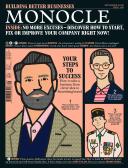
Issue 116
Building better businesses. Inside: no more excuses – discover how to start, fix or improve your company right now!
In This Issue
Oops! No content was found.
Looks like we no longer have content for the page you're on. Perhaps try a search?
Return Home

